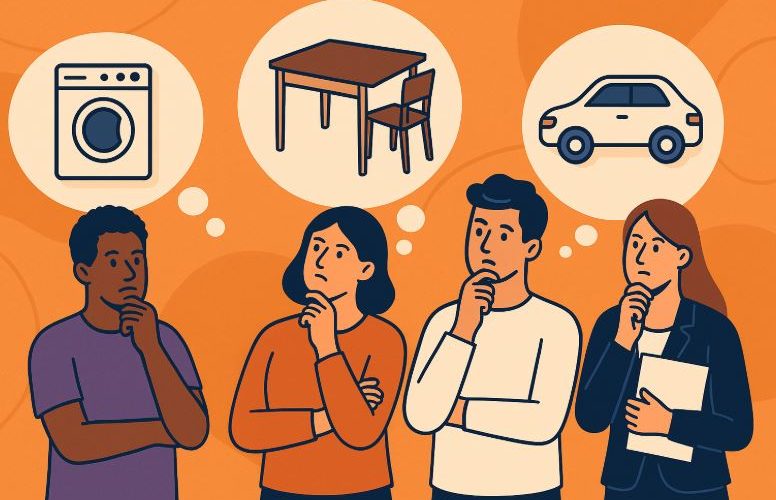For many people in the UK, waiting five weeks for the first Universal Credit payment can feel impossible. Imagine facing overdue rent, an empty fridge, or broken household essentials with no money coming in.
For individuals and families in such situations, a Universal Credit advance payment or budgeting advance can offer vital support.
This blog explores why people apply for Universal Credit advances, how the system works, who qualifies, and how repayments are structured.
This guide aims to break down the process into simple, easy-to-understand steps while offering practical advice that applies in England, Scotland, Wales, and Northern Ireland.
Understanding Universal Credit Advances In The UK
Universal Credit is a benefit designed to help people on a low income or out of work meet their basic needs. However, one of the biggest challenges claimants face is the five-week wait before the first payment arrives. This is where advance payments come into play.
Types Of Advances
There are two main types of advance:
- Advance Payment (New Claim Advance): For people who have applied for Universal Credit but have not received their first payment yet.
- Budgeting Advance: For people already receiving Universal Credit who need help with one-off or urgent costs.
These advances act as loans from future payments, meaning they must be paid back over time, typically through deductions from future Universal Credit.
Who Can Apply For A Universal Credit Advance?
Eligibility for an advance payment depends on individual circumstances.
New Claim Advance Eligibility
You can apply if:
- You are waiting for your first Universal Credit payment.
- You are in financial hardship, struggling to pay rent, buy food, or cover essential bills.
Budgeting Advance Eligibility
To qualify for a budgeting advance, you need to meet certain conditions:
- Have received Universal Credit, Income Support, income-based Jobseeker’s Allowance, income-related Employment and Support Allowance, or Pension Credit for at least six months.
- Have earned less than £2,600 in the past six months (£3,600 if you live with a partner).
- Have paid off any previous budgeting advances.
Regional Considerations
This advice applies to England, but guidance is available for Scotland, Wales, and Northern Ireland, where specific rules or additional support may apply.
What Expenses Can A Budgeting Advance Cover?
Budgeting advances are designed to help with important one-off or emergency costs.
Examples Of Covered Expenses
- Replacing essential household items like a fridge or cooker.
- Work-related expenses such as tools, uniforms, or travel for a new job.
- Maternity or funeral expenses.
- Home repairs or improvement costs.
- Moving costs or a rent deposit.
- Essential clothing or footwear.
If you have applied for Universal Credit but are waiting for your first payment, you should apply for an advance payment instead of a budgeting advance.
How Much Can You Borrow Through A Universal Credit Advance?
The amount you can borrow depends on your household situation.
Minimum And Maximum Amounts
| Household Type | Minimum Advance | Maximum Advance |
| Single (no children) | £100 | £348 |
| Couple (no children) | £100 | £464 |
| With children | £100 | £812 |
If you have savings or capital over £1,000, the advance is reduced by the excess amount. For example, if you have £1,250 in savings, your advance may be reduced by £250.
Repayment Duration
As of 4 December 2024, advances are generally repaid over 24 months. If the advance was taken before that date, the repayment period is usually 12 months.
What Are Universal Credit Advance Payment Reasons?
Understanding why people apply for an advance is key to recognising its importance.
Common Reasons For Requesting An Advance
- Waiting for the first Universal Credit payment.
- Facing sudden financial hardship or unexpected expenses.
- Experiencing an increase in entitlement due to a change in circumstances.
- Needing help to stay in work or take up a job opportunity.
- Covering rent, food, heating, or urgent household repairs.
Advances offer a critical lifeline, helping people stay afloat during periods of transition or crisis.
How Do You Apply For A Universal Credit Advance?
Applying for an advance is a straightforward process, but knowing where to start is crucial.
Application Methods
- Online Account: Use your Universal Credit online account to apply. You may be directed to the Service Centre or asked to speak to your work coach.
- Jobcentre Plus Work Coach: Explain your situation in person.
- Universal Credit Helpline: Call and speak with an adviser.
Information You Will Need
- Bank or building society account details.
- Proof of identity.
- Explanation of why you need the advance.
- Partner’s details if it is a joint claim.
You usually get a decision on the same day, and funds are often deposited within three working days. In emergencies, same-day payments may be available.
How Are Budgeting Advances And Advance Payments Repaid?
Repayment terms are important to understand so you can plan your finances.
Repayment Periods
| Type of Advance | Repayment Time (New Rules) |
| New Claim Advance | Up to 24 months |
| Budgeting Advance (pre-Dec 2024) | 12 months |
| Budgeting Advance (post-Dec 2024) | 24 months |
Repayment Method
- Deductions from future Universal Credit payments.
- If no longer receiving Universal Credit, repayments are taken through wages, other benefits, or via debt collection agencies.
In exceptional cases, repayments can be delayed for up to three months.
What Happens If You’re Refused An Advance?
Being refused an advance can be worrying, but there are steps you can take.
Reasons For Refusal
- You have enough money to cover your costs.
- You live with parents, relatives, or friends.
- You have redundancy payments or accessible savings.
- Your identity has not been verified at the Jobcentre.
While there is no formal appeal process, you can ask for the decision to be reconsidered, especially if your circumstances have changed or you can provide new evidence.
How To Manage If You’re Struggling With Repayments?
Financial difficulty can make advance repayments stressful, but help is available.
Options For Managing Repayments
- Request a temporary delay of up to three months.
- Speak to the DWP Debt Management Contact Centre for help arranging affordable repayments.
- Get support with Direct Debit arrangements or request paying-in slips.
Contact Information
- DWP Debt Management Contact Centre: 0800 916 0647
- Relay UK (if you cannot hear or speak): 18001 then 0800 916 0647
- Textphone: 0800 916 0651
Repayments continue even if you move off Universal Credit, and ignoring payment requests can lead to deductions from wages or the involvement of a debt collection agency.
What Other Financial Help Is Available Besides Universal Credit Advances?
While advances can be a short-term fix, other forms of help may be better suited in some cases.
Additional Help
- Universal Credit New Claims Grant (non-repayable support in some cases).
- Local council’s household support funds.
- Charities and hardship funds.
- Food banks and clothing banks.
- Support from friends or family.
Use online benefits calculators like Entitledto or Better Off (Policy in Practice) to estimate your payments and check if you qualify for extra elements.
Conclusion
Life’s unexpected expenses can feel overwhelming, but knowing your options under Universal Credit can make a real difference.
Whether you are waiting for your first payment, facing urgent costs, or need help staying in work, advances and budgeting advances provide much-needed support.
Remember, these are loans that must be repaid, so only apply for what you truly need. Explore other available help, seek advice if you are struggling with repayments, and take proactive steps to protect your financial wellbeing.
FAQs
What’s The Difference Between A Universal Credit Advance And A Budgeting Advance?
A Universal Credit advance is for new claimants waiting for their first payment, while a budgeting advance is for existing claimants who need help with specific expenses.
Can You Apply For A Universal Credit Advance More Than Once?
Yes, but you must have paid off any previous advance before applying for another.
How Quickly Do You Get A Universal Credit Advance?
You usually get a decision on the same day, and the money is often paid within three working days. Emergency same-day payments are possible.
What Happens If You Move Off Universal Credit Before Repaying An Advance?
You are still required to repay, often through deductions from wages or other benefits, or by making arrangements with DWP Debt Management.
Can You Delay Universal Credit Advance Repayments?
Yes, in exceptional circumstances, you can request to delay repayments for up to three months.
What Can I Do If I Can’t Afford Essential Bills Before My First UC Payment?
You can apply for an advance payment or seek help from local councils, charities, or food banks.
Are There Other Government Schemes To Help With Household Costs?
Yes, besides advances, you can look into the Universal Credit New Claims Grant, local hardship funds, or support from charities.









